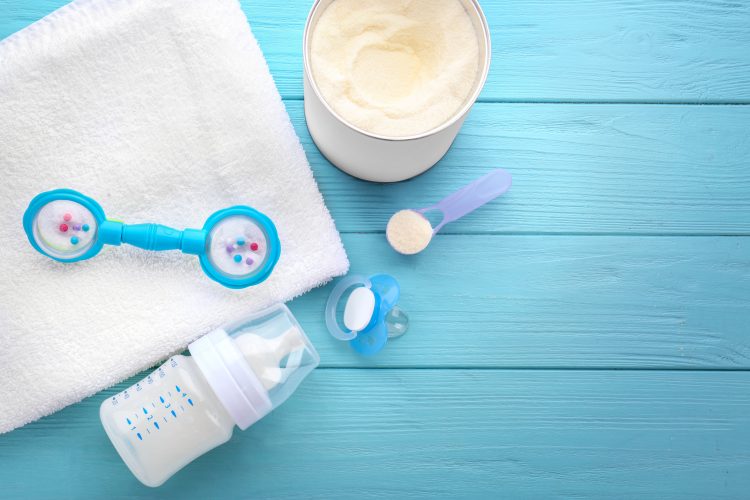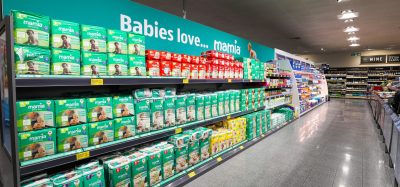Do infant formulas promise too much?
- Like
- Digg
- Del
- Tumblr
- VKontakte
- Buffer
- Love This
- Odnoklassniki
- Meneame
- Blogger
- Amazon
- Yahoo Mail
- Gmail
- AOL
- Newsvine
- HackerNews
- Evernote
- MySpace
- Mail.ru
- Viadeo
- Line
- Comments
- Yummly
- SMS
- Viber
- Telegram
- Subscribe
- Skype
- Facebook Messenger
- Kakao
- LiveJournal
- Yammer
- Edgar
- Fintel
- Mix
- Instapaper
- Copy Link
Posted: 17 April 2023 | Grace Galler | No comments yet
Scientists have carried out an investigated into various infant formulas from 15 countries and have called for stricter rules regarding nutritional claims.


Danone's new infant formula has a lower carbon footprint than other formulas, according to the manufacturer
Researchers have carried out a study into the nutritional claims made by infant formula companies and have found that “most of the claims about the health-giving and nutritional properties of breast milk substitutes seem to be based on little or no evidence”.
Carried out by a group of scientists at Imperial College London, the team has said that the claims made by companies are “controversial” as they say they can give the impression that infant formulas are “just as good as breast milk, perhaps even better, without any scientific basis for the claim”.
To carry out the study, the research team examined products from 15 countries with different social and economic conditions. The countries of analysis included: Norway, Australia, Canada, Germany, India, Italy, Japan, Nigeria, Pakistan, Russia, Saudi Arabia, South Africa, Spain, the UK and the US.
Spotlight on Norway
One of the countries examined was Norway, a country that has a tradition of mothers breastfeeding infants for a long time during infancy. The researchers found that four out of five infants in Norway still receive breast milk when they are six months old, with only two per cent never receiving any breast milk.
“Supportive social arrangements and long parental leave contribute to allowing many mothers in Norway to breastfeed,” says Melanie Rae Simpson, an associate professor at the Norwegian University of Science and Technology’s Department of Public Health and Nursing.
“Strict rules for marketing breast milk substitutes mean that advertising doesn’t influence how long women in Norway breastfeed,” explained Simpson.
However, in Norway there are still caregivers that opt for infant formulas when feeding their babies and the researchers have highlighted that some products “make a lot of promises” and while “Norwegian claims maybe not so crazy” they “could be better”.
“A relatively high proportion of the products available in Norway include one or more claims about being beneficial for health. With so many women who breastfeed, we don’t have as many different types of infant formula in our grocery stores compared to some of the other countries in the study,” said Simpson.
The researchers found that Norway has “clear legislation to prevent undocumented claims from being used in connection with breast milk substitutes”. However they have also highlighted that the documentation was characterised by the same challenges around transparency, independence from industry and scientific quality that the team of researchers saw in the other countries.
Overarching results
In addition, the research group analysed the websites of various companies that produce infant formula while also looking at the packaging of the products along with the nutritional claims.
Overall the researchers noted 41 different ingredients linked to these claims however they also found several companies to be marketing their products without referring to specific ingredients.
In total, the researchers tested 757 products, of which 608 reportedly included at least one of the total 31 different claims about nutrition and health.
Significantly, the researchers said that “only 161 of the 608 products referred to scientific research to support their claims”. However, only 14 per cent of the investigations were clinical investigations that were carried out on humans.
The “research” used by infant formula companies is said by the scientists to be based on reviews, opinions and other forms of research that do not meet “high enough quality requirements”.
The study group was supported by Professor Nigel Rollins, Department of Maternal, Newborn, Child and Adolescent Health at the World Health Organization, who believes that self-regulation is “clearly not good enough”.
Going forward, the researchers are calling for stricter rules to better product users and to avoid aggressive marketing that could cause future implications for children’s health.
Overall, the researchers have highlighted the need for regulatory authorities in various countries to consider whether they need to take action to improve conditions.
Related topics
Food Safety, Health & Nutrition, Quality analysis & quality control (QA/QC), Research & development, retail, The consumer, Trade & Economy, World Food
Related organisations
Imperial College London, Norwegian University of Science and Technology, World Health Organization









